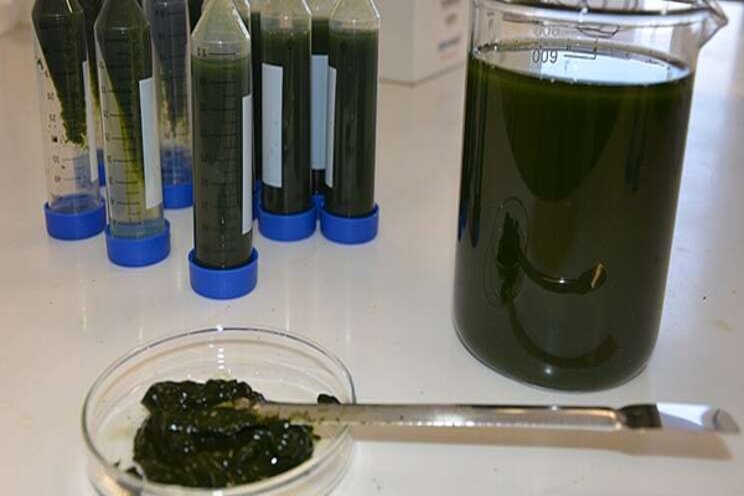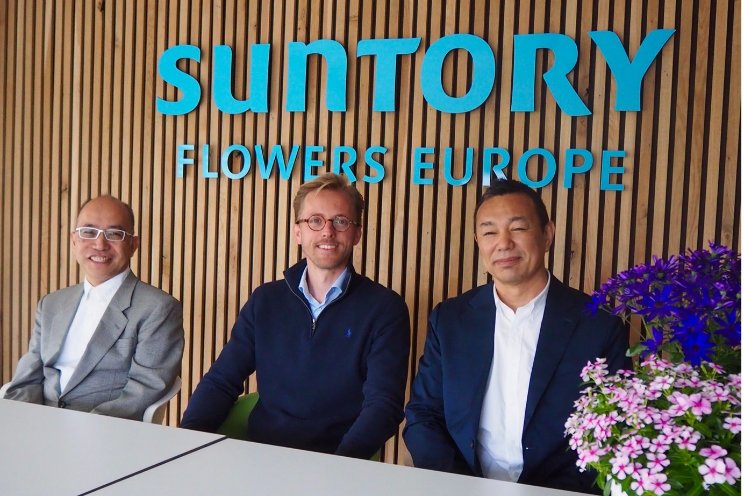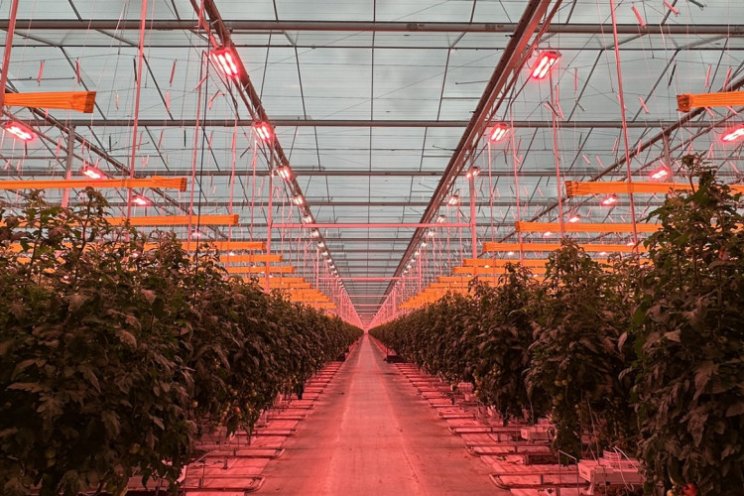New seaweed-based bioinput improves plant growth
Added on 03 May 2021

The technology was developed through a partnership between Embrapa, the company Dimiagro, which specializes in the fertilizer market, the Brazilian Service of Support to Micro and Small Businesses (Sebrae) and the Brazilian Industrial Innovation Corporation (Embrapii).
It consists in the mix of dry cyanobacteria extracts with a foliar fertilizer that contains nitrogen, phosphorus and potassium, as well as the micronutrients boron, zinc and molybdenum. The new product can be categorized as a biostimulant.
"In specific growth conditions, the cyanobacteria produce reasonable amounts of the indole-3-ascetic acid phytohormone, which is a chemical signaler for the multiplication of cells and tissues, and of salicylic acid, which is related to the stimulation of the plant defense system", explains the Embrapa researcher César Miranda, leader of the Macrofert project.
The assessments of the application of the product developed by Embrapa demonstrated that, in controlled greenhouse conditions, the production of soybean and corn significantly benefited from it and had an increase in plant growth and rooting as high as 10%.
"We observed that the plants that received the product grew to be more vigorous and productive than those that were not applied with it", Miranda reports. The results were similar to the ones recorded with the application of similar doses of a foliar fertilizer with extracts of the macroalgae Ascophyllum - native to the north of the Atlantic Ocean - , an already established practice in the market that has good acceptance especially among soybean growers.
Recommended for the periods when the plants haver a greater energy requirement, the use of biofertilizers supplies additional essential nutrients at critical stages of the crop, like the bud burst period. "Adding exogenous phytohormones can favor optimal nutrition, as it improves the efficiency of the use of nutrients at the moment when the plant establishes the parameters that will define the final grain yield", adds the researcher. He clarifies that, in adverse conditions, e.g. weather, pest attacks or limited availability of essential nutrients, such extra input favors a balance in plant development, which results in productivity gains.
Acceptance in the market and production scale
In the national market there are some brands of foliar fertilizer with macroalgae extracts available, most of which are imported, since the Brazilian legislation does not allow seaweed extraction along the sea coast. Thus the initial idea of the research project was to find a substitute with similar or better efficiency than the imported extracts to formulate a seaweed-based fertilizer.

"The cyanobacteria that compose our extract are fully cultivated in the laboratory in a clean, zero-waste process. This allows us to use this species from the Brazilian biodiversity without exploring it through extraction and causing damage to the environment. And it also guarantees the product has controlled quality", the scientist from Embrapa explains.
Miranda reports that the use of imported macroalgae-based fertilizers is not very common among Brazilian farmers, and soybean growers are the ones that currently adopt this technology more often. The researcher stresses that the practice has nevertheless been growing in recent years, especially because farmers already know the effects of biological inputs applied to soybeans, such as the ones that inoculate the Bradyrhizobium bacteria for biological nitrogen fixation.
"The new extract produced by Embrapa will favor the dissemination of knowledge among farmers, who seek biological alternatives that ensure the stability of production in light of adverse conditions like climate events and dissemination of pests and diseases", the researcher declares.
The CEO of Dimiagro, Grégori Boligon Vieira, believes that the production of seaweed in Brazil will allow costs with imports to be reduced and generate more jobs. "With a seaweed extract with phytohormones that stimulates the plant vegetative, reproductive and defense systems, we will consequently increase productivity", he anticipates. He underscores that another advantage of Embrapa's cyanobacteria extract is the high amount of phytohormones expressed in its biomass after the process of drying in a greenhouse at controlled temperatures, which is essential to obtain a market scale.
On a laboratorial production scale, the technique to produce cyanobacteria is simple and requires high-school level education and basic laboratory knowledge, with emphasis on microbiology. The laboratory conditions to sustain the cyanobacteria are also relatively simple.
The tests to increase the production scale will start in 2021, when the second stage of the Macrofert project will start. "We are going to initiate a cycle of at least another two years of experimentation and improvement to have confidence of the real potential of algae extract production to meet the market demand according to the current pattern of use", Miranda asserts. The second research stage will also include production cost analyses and field studies in actual production conditions.
Source and Photo Courtesy of Ag News
Source: Ag News
More news















